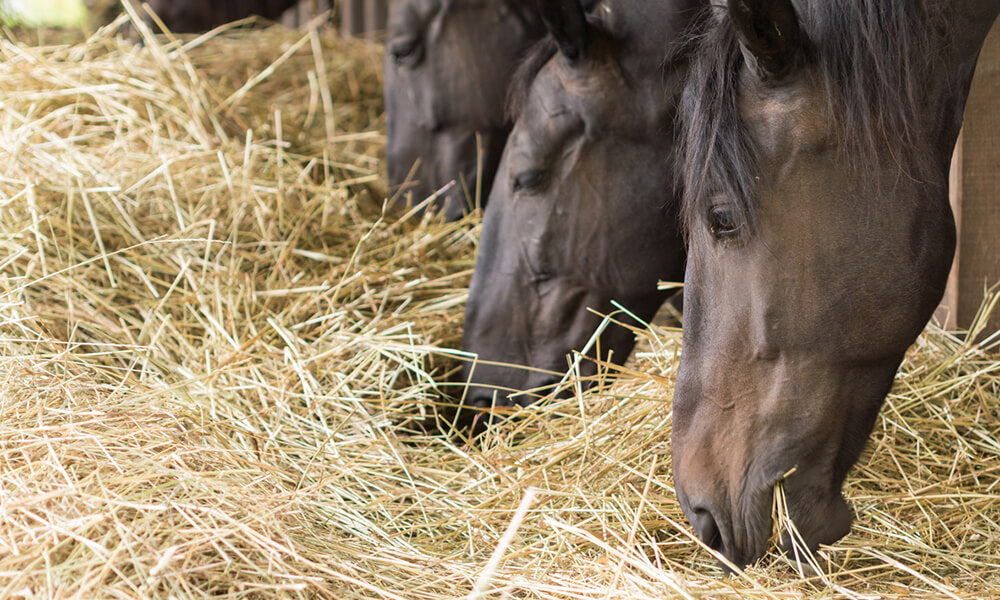Feeding insulin resistant horses can be a challenging task for many horse owners. Understanding the dietary needs of these horses is essential for maintaining their health and well-being. In this guide, we will explore effective strategies for managing the diet of insulin resistant horses to ensure they lead happy and healthy lives.

Understanding Insulin Resistance in Horses
Before delving into the specifics of feeding, it’s essential to understand what insulin resistance is and how it affects horses. Insulin resistance occurs when the body’s cells become less responsive to the hormone insulin, which is crucial for regulating blood sugar levels. In horses, this can lead to a variety of health issues, including laminitis, obesity, and metabolic syndrome.
Causes of Insulin Resistance
Several factors can contribute to the development of insulin resistance in horses. These include genetics, obesity, lack of exercise, and improper diet. Identifying these factors in your horse’s life can help you make necessary changes to their care routine.
Signs of Insulin Resistance
Recognizing the signs of insulin resistance is crucial for early intervention. Common symptoms include unexplained weight gain, fat deposits in unusual areas, and a tendency to develop laminitis. If you notice these signs, it’s important to consult with a veterinarian for a proper diagnosis.
Essential Dietary Considerations
When it comes to feeding insulin resistant horses, the diet plays a pivotal role in managing their condition. Here are some key dietary considerations:
Low Sugar and Starch
A diet low in sugar and starch is critical for insulin resistant horses. These horses should have limited access to grains and sugary treats. Instead, focus on providing hay or pasture that is low in non-structural carbohydrates (NSC).
Fiber-Rich Diet
Fiber is an essential component of a horse’s diet, especially for those with insulin resistance. High-fiber feeds, such as beet pulp and hay, can help maintain stable blood sugar levels.
Balanced Vitamins and Minerals
Ensuring your horse receives a balanced intake of vitamins and minerals is vital. Consider using a mineral blocks to provide essential nutrients that might be lacking in their diet.
Feeding Strategies for Insulin Resistant Horses
Implementing the right feeding strategies can make a significant difference in managing insulin resistance in horses.
Restricted Grazing
Limiting your horse’s access to lush pastures can help control their intake of sugars. Using a grazing muzzle or creating a dry lot are effective ways to manage grazing.
Regular Feeding Schedule
Maintaining a consistent feeding schedule can help stabilize blood sugar levels. Divide their daily ration into multiple smaller meals to avoid spikes in insulin.
Weight Management
Keeping your horse at a healthy weight is crucial. Implement a body condition scoring system to monitor their weight and adjust their diet accordingly.
Role of Exercise
Exercise is a vital component of managing insulin resistance. Regular physical activity helps improve insulin sensitivity and promotes overall health.
Types of Exercise
Incorporate a variety of exercises into your horse’s routine, including walking, trotting, and lunging. Tailor the intensity and duration to suit your horse’s fitness level.
Benefits of Exercise
Exercise not only helps with weight management but also improves circulation and reduces stress levels. It plays a crucial role in preventing the onset of metabolic issues.
Consulting with Professionals
Working with a team of professionals can provide valuable insights into managing insulin resistance.
Veterinarian’s Role
Your veterinarian can offer guidance on dietary adjustments, exercise plans, and medication if necessary. Regular check-ups ensure your horse’s condition is monitored effectively.
Equine Nutritionists
Consulting with an equine nutritionist can help you develop a tailored feeding plan that meets your horse’s specific needs.
Supplements for Insulin Resistant Horses
Supplements can play a supportive role in managing insulin resistance.
Magnesium and Chromium
Both magnesium and chromium have been shown to improve insulin sensitivity. Consider incorporating these supplements into your horse’s diet. Learn more about magnesium for horses.
Zinc and Selenium
Zinc and selenium are essential for overall health. Ensure your horse receives adequate amounts of these minerals. Read more about zinc for horses.
The Importance of Monitoring
Regular monitoring is essential for managing insulin resistance effectively.
Blood Tests
Routine blood tests can provide valuable information about your horse’s insulin levels and overall health. Work with your vet to establish a testing schedule.
Body Condition Scoring
Utilize a body condition scoring system to track changes in your horse’s weight and adjust their diet and exercise regimen accordingly.
External Resources
For further information on diagnosing nutritional problems in horses, visit this Rutgers fact sheet.

FAQ
What is insulin resistance in horses?
Insulin resistance in horses is a condition where the body’s cells become less responsive to insulin, leading to various health issues such as laminitis and obesity.
How can I manage my insulin resistant horse’s diet?
Focus on a low sugar and starch diet, provide high-fiber feeds, and ensure a balanced intake of vitamins and minerals. Consult with professionals for tailored advice.
Is exercise important for insulin resistant horses?
Yes, regular exercise is crucial for improving insulin sensitivity, managing weight, and promoting overall health in insulin resistant horses.
This article contains affiliate links. We may earn a commission at no extra cost to you.
